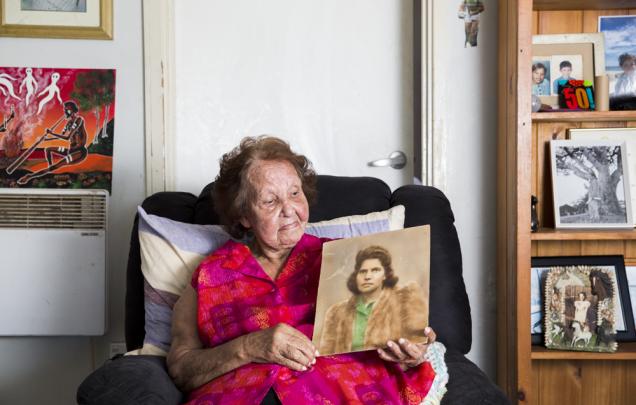The role of Elders
Students will use an oral history source to learn about the contributions Indigenous people have made to society, and to investigate how society has changed throughout the 20th Century.
This is the student activity 1 of 1 of the Sydney elders: oral histories learning activity.

Key inquiry question #1
What is the significance of oral histories to forming an understanding of the experiences of Indigenous people living in Sydney throughout the 20th Century and beyond?
Using oral histories as sources
Discuss the following with your class:
- Where do you go if you would like to find out about the past?
- What types of primary and secondary sources have you used to find out about the past?
- Have you ever used an oral history?
- When might it be useful to use oral histories?
Curator Jonathon Jones highlights that:
"without knowledge holders, without our storytellers and without our Elders, the library is just a cold archive full of bits of paper."
For Aboriginal and Torres Strait Islander people, Elders are like the libraries for their community. Elders are the knowledge holders and they share their knowledge so that others can understand the past, allowing culture and traditions to continue on into the future.
Asking questions
Watch the videos of four Aboriginal Elders in Sydney Elders : Continuing Aboriginal Stories or select the story of one Elder.
After viewing the personal story of at least one Elder from the Sydney Elders online exhibition, create a list of 3-4 questions you would like to ask them. You may like to look at the collection materials that are displayed as part of the online exhibition to help you create your questions.
Feature article
Compose a feature article to be published in a local newspaper. This article will be focusing on an Aboriginal Elder featured in the Sydney Elders online exhibition. The feature article should include the following information:
- An introduction to the Elder – where they are from, their family life, interests, skills
- A description of the Elder’s contribution to Australian society
- The changes in society they have noticed in their lifetime (consider Aboriginal and Torres Strait Islander rights and societal attitudes towards Aboriginal and Torres Strait Islander people)
- The cultural practices and traditions that this Elder is involved in and would like to see continued
Reflection
Reflect on what you have learnt as a result of exploring the online exhibition, Sydney Elders. Consider what you have uncovered about the value of oral histories in forming an understanding of the past, and the depths that personal stories can add to other historical sources, such as photographs.
Complete the following sentences to express what you have learnt.
- I used to think that the best sources to use for research were...
- I discovered that oral histories...
- Now I understand that...